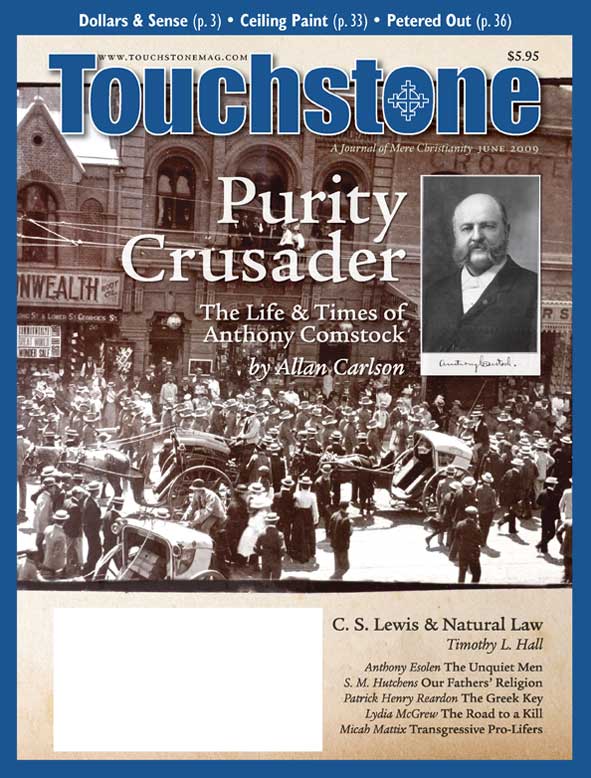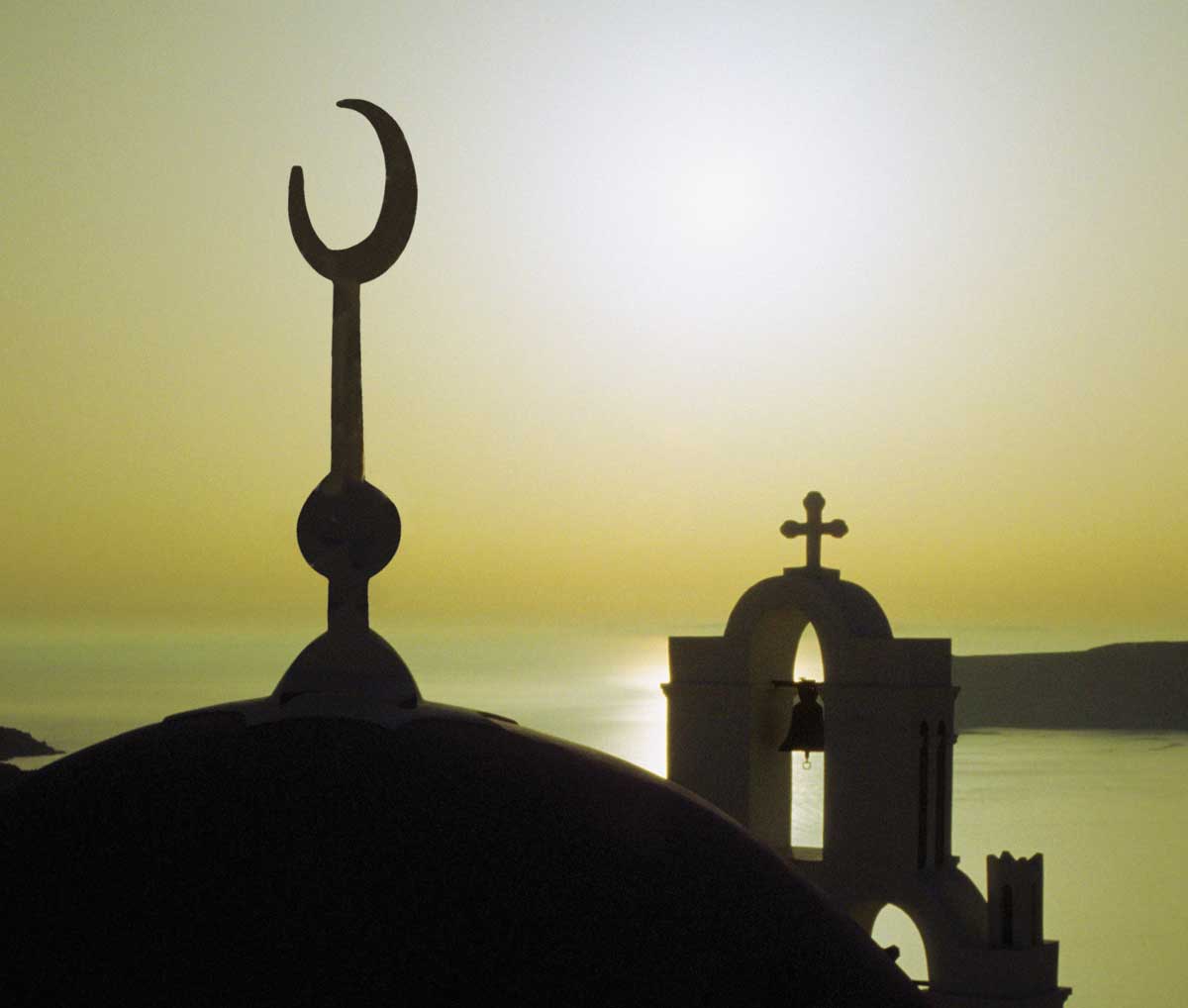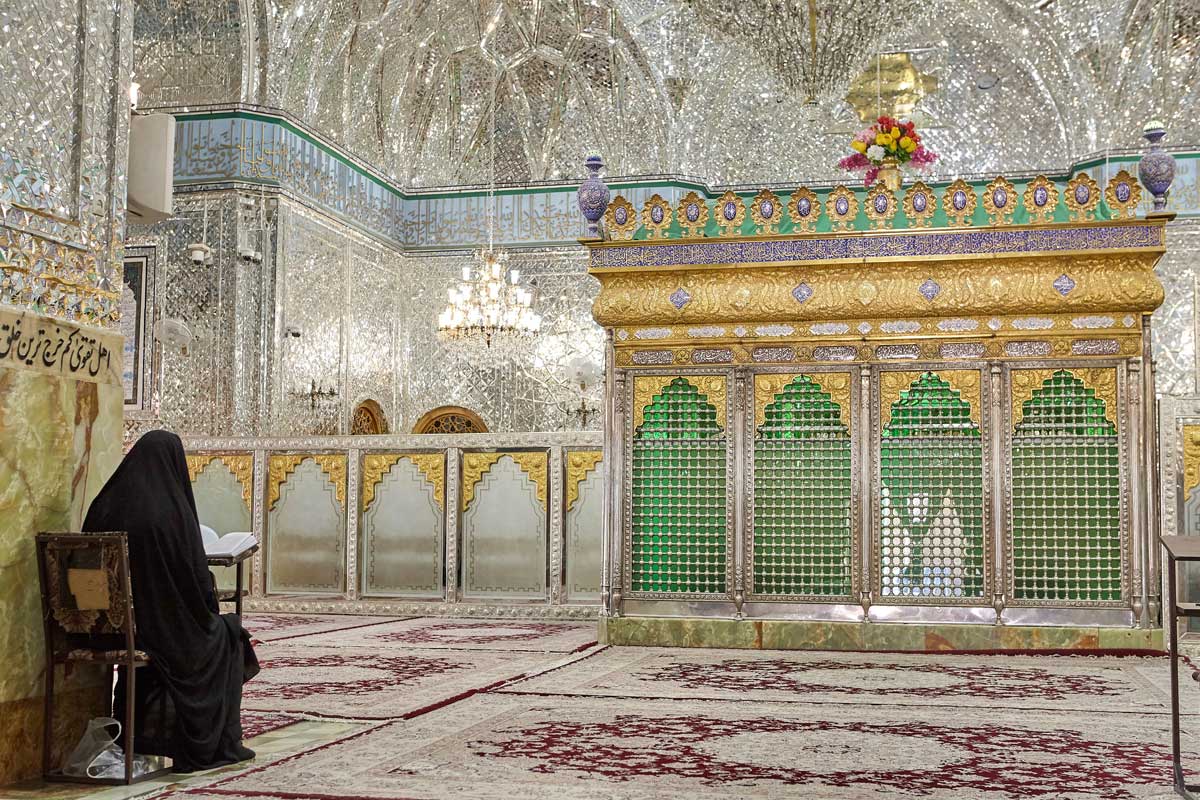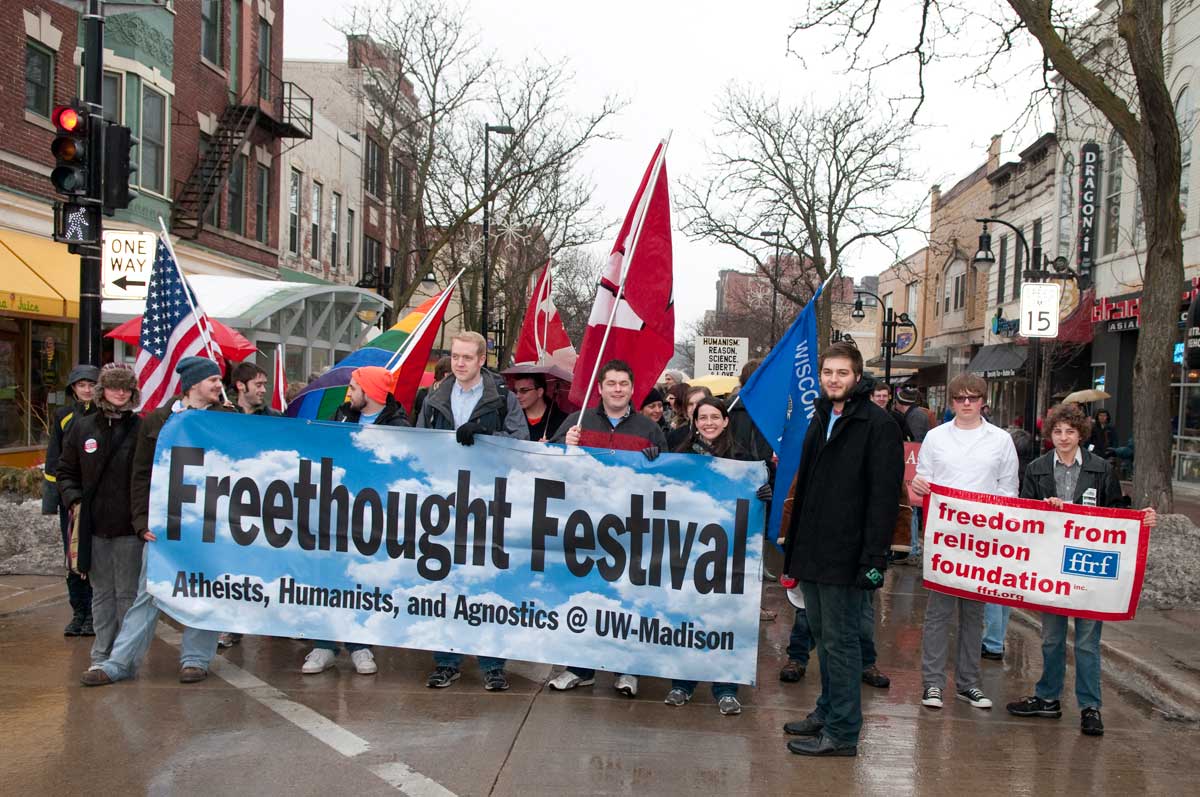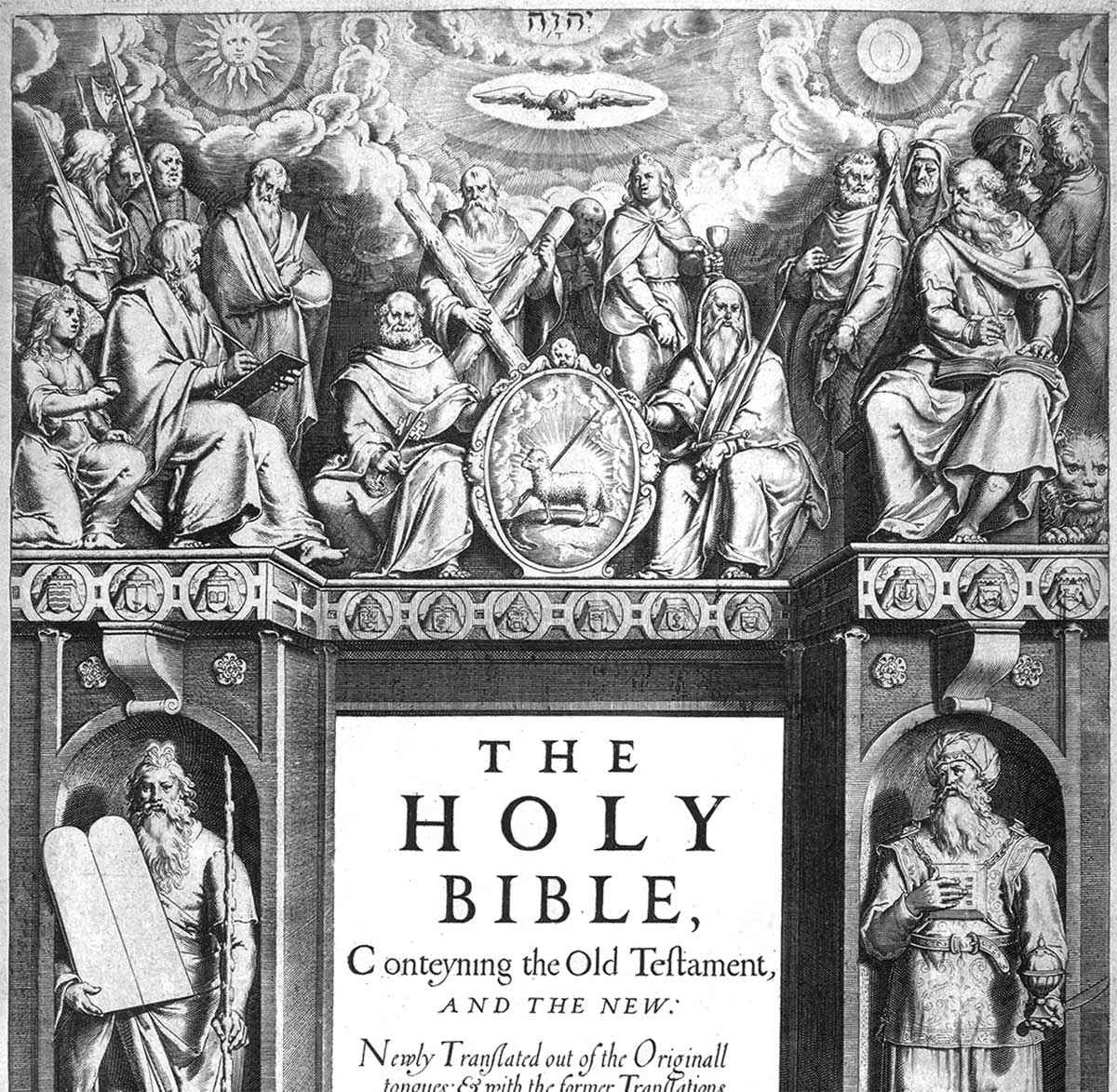The Gospel & the Prophet
American Christians and Islam: Evangelical Culture and Muslims from the Colonial
Period to the Age of Terrorism
by Thomas S. Kidd
Princeton University Press, 2009
(201 pages, $29.95, hardcover)
reviewed by Sandra Tonies Keating
Thomas Kidd has done a great service with his publication of American Christians and Islam. Although there is an endless array of studies on various aspects of the relationships between Muslims and Christians throughout the past 1,400 years, this is, to my knowledge, the first to examine American Evangelical attitudes toward Islam. Kidd presents a vast amount of material in a clear, readable manner, and his book should be of interest to anyone trying to understand the extremely complex dynamic of contemporary Muslim-Christian relations.
American Christians and Islam begins with a fascinating look at the presence of Muhammad and Muslims as a theme in early Anglo-American literature. The True Nature of Imposture Displayed in the Life of Mahomet (London, 1697) by Humphrey Prideaux, for example, had a wide-reaching impact on colonial views of Islam. This “biography” of Muhammad, which was reprinted eight times over the next 25 years, claimed to outline the many deceits of the founder of Islam and drew a close connection between them and the assertion of supremacy by the Bishop of Rome over the Christian Church in Europe in the seventh century.
Prideaux believed that in Islam and Roman Catholicism one could clearly identify the hold of the Antichrist over Christendom in both the East and the West, which needed to be overcome by true Christians. This premise became the foundation for the later call to mission in the Middle East by Evangelicals and the attention given to converting not only Muslims but the Orthodox and Catholics as well.
Early Americans found evidence for Prideaux’s portrait of Islam in a new literary genre that appeared in the early nineteenth century, which contained descriptions (both fictional and non-fictional) of those who had been held captive by Muslim pirates and sold into slavery. The most popular of these purported first-hand accounts was the History of the Captivity and Sufferings of Mrs. Maria Martin (first published in 1807), which gave detailed descriptions of the brutal treatment of white Christian slaves in Algeria. Many of these reports contrasted the “barbaric” practices of Muslims with the goodness fostered by Christian faith. Such tales became hugely popular among the educated classes and formed attitudes among Evangelicals in the following century.
Eschatology & Missions
Simultaneously, a rising interest in the eschatological roles of Islam and Catholicism in the End Times developed among American Christians. Throughout the remainder of his book, Kidd underscores the impact that various readings of biblical prophecy by historicists and dispensationalists of diverse stripes had on the attention given to Christian missions in the Middle East. Many came to see the expansion of Anglo-Missionary Christian civilization as the fulfillment of prophecy and optimistically anticipated the rapid collapse of Islamic powers as Muslims turned to Christ. All that was needed was the preaching of the gospel in every corner of the world.
Muslims, however, proved to be much more resistant to the efforts of Evangelical missions than expected. Although enthusiasm was great, Kidd notes, the lack of success in gaining converts from Islam is astounding—the total numbers probably remaining in the tens rather than the thousands. Most of the converts came instead from among the “pagans” and “nominal Christians,” as missionaries regarded Roman Catholics and Orthodox Christians.
A key figure responding to the difficulties of evangelizing Muslims at the turn of the twentieth century was Samuel Zwemer of the Reformed Church. Throughout his career, he avidly promoted fundamentalist missions in the Middle East, through both his numerous writings and his own activities. In 1906 he helped organize the Cairo Conference, which took up the topic of direct evangelization of Muslims worldwide and the necessity of reaching those who did not have the benefit of Christian preaching of the gospel. Following the conference, there was a renewed optimism that Muslims could be converted with the right methods, but they had to be reached before the spread of communism infected them.
The conclusion of the First World War seemed to confirm this interpretation of events in the Middle East. Britain had captured Jerusalem, the Ottoman Empire was officially dismembered, and the Balfour Declaration promised the return of the Jews to their ancient homeland. The importance of Israel as a sign that the End Times were near and prophecy was about to be fulfilled drew American Christians to enthusiastic support for the establishment of a Jewish state. Many people felt that Islam was weakening and believed these were certain signs that the time was ripe for evangelization, yet surprisingly little was actually done to realize this vision.
Sandra Tonies Keating is Associate Professor of Theology at Providence College in Providence, Rhode Island, and an expert in Muslim-Catholic relations and a Consultor to the Vatican on Islam.
subscription options
Order
Print/Online Subscription

Get six issues (one year) of Touchstone PLUS full online access including pdf downloads for only $39.95. That's only $3.34 per month!
Order
Online Only
Subscription

Get a one-year full-access subscription to the Touchstone online archives for only $19.95. That's only $1.66 per month!
bulk subscriptions
Order Touchstone subscriptions in bulk and save $10 per sub! Each subscription includes 6 issues of Touchstone plus full online access to touchstonemag.com—including archives, videos, and pdf downloads of recent issues for only $29.95 each! Great for churches or study groups.
Transactions will be processed on a secure server.
more on islam from the online archives
more from the online archives
calling all readers
Please Donate
"There are magazines worth reading but few worth saving . . . Touchstone is just such a magazine."
—Alice von Hildebrand
"Here we do not concede one square millimeter of territory to falsehood, folly, contemporary sentimentality, or fashion. We speak the truth, and let God be our judge. . . . Touchstone is the one committedly Christian conservative journal."
—Anthony Esolen, Touchstone senior editor





